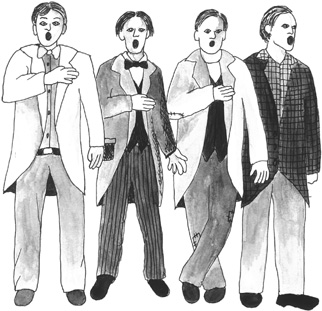
GOD save our gracious Queen,
Long live our noble Queen,
God save the Queen!
Send her victorious,
Happy and glorious,
Long to reign over us;
God save the Queen!
Thy choicest gifts in store
On her be pleased to pour;
Long may she reign.
May she defend our laws,
And ever give us cause
To sing with heart and voice,
God save the Queen!
The expression ‘God save the king’ first appeared in print in the King James Bible in 1611 but is thought to have been a catchphrase of the Royal Navy as early as 1545. In 1739, the composer Thomas Augustine Arne (1710-78), who also

created ‘Rule Britannia’, wrote an early version of the words and set them to music to be performed at a dinner in 1740 in London to celebrate the first victory in the War of Jenkins’ Ear.
Both ‘Rule Britannia’ and ‘God Save the King’ were intended to encourage patriotic support for George II at a troubled time in English history. The War of Jenkins’ Ear with Spain – sparked off by one Robert Jenkins, the captain of a smuggling vessel whose ear was supposedly severed in a tussle with the Spanish coastguard – was just about to escalate into the War of the Austrian Succession. Meanwhile, back at home, there was the Second Jacobite Rebellion to contend with – one of two uprisings aimed at restoring Stuart kings to the British throne; an army led by the Young Pretender, 25-year-old Bonnie Prince Charlie, attacked and initially defeated the king’s men at the Battle of Prestonpans (see also Elsie Marley, The Lion and the Unicorn and The Skye Boat Song).
The song first appeared in print on 15 October 1745, when it was published in The Gentlemen’s Magazine, and billed as ‘God save our lord the king: A new song set for two voices’. The current official version has been in use since 1919 courtesy of King George V, who, due to the number of times he had heard it played, considered himself to be ‘something of an expert’, and in 1933 a proclamation was issued, setting out the melody, tempo and orchestration that has been in use ever since.